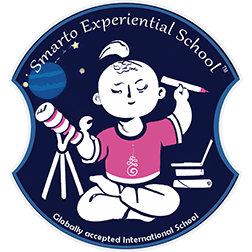In today’s world, education confined only to textbooks is becoming outdated. While traditional schooling focuses on theories and structured methods, experiential learning offers students a dynamic and impactful way to learn. It’s an approach that actively prepares students for real-life challenges by making education practical and engaging.
What is Experiential Learning?
Experiential learning is a method of education where students learn through direct experience. It bridges the gap between theory and practice by placing students in practical situations where they can apply their knowledge. This unique approach allows children to face real-world scenarios, fostering critical thinking, decision-making, and creativity.
Benefits for Children’s Development
- Practical Knowledge: While textbook knowledge is essential, it becomes more meaningful when children apply it in real-world situations. Experiential learning provides students with hands-on experiences where they can use what they’ve learned in the classroom, enhancing their understanding and retention of knowledge.
- Building Confidence and Leadership Skills: When children are given the opportunity to work independently and make decisions, their confidence grows. Experiential learning empowers students to become leaders by encouraging self-reliance and accountability.
- Problem-Solving Skills: Real-life situations often come with challenges, and experiential learning teaches students how to find creative solutions. This approach helps them develop flexible thinking and adaptability, which are critical skills for both their careers and personal lives.
- Collaboration and Teamwork: Many experiential learning projects are team-based, helping students learn the value of collaboration. Working together with their peers improves interpersonal skills and emphasizes the importance of teamwork.
- Self-Motivation and Ownership: When children become active participants in their own learning process, they develop a sense of ownership over their work. This leads to greater self-motivation, making them more responsible and engaged learners.
Preparing for Future Careers
This approach not only benefits students academically but also helps them in their career preparation. Through internships, projects, and industry-related tasks, experiential learning gives students real-world exposure, making them better prepared for future job opportunities.
Keeping Up with Modern Technology
In today’s tech-driven world, experiential learning allows students to engage with digital tools and modern technologies. From coding to robotics, this learning method helps children stay up-to-date with new advancements and prepares them to thrive in a rapidly changing technological landscape.
In Conclusion
Experiential learning is a powerful educational model that integrates theory with practical experience. It equips children with real-world skills, going beyond just academic knowledge. This unique learning experience not only helps children succeed in their studies but also prepares them for success in their personal and professional lives.


Leave a Reply